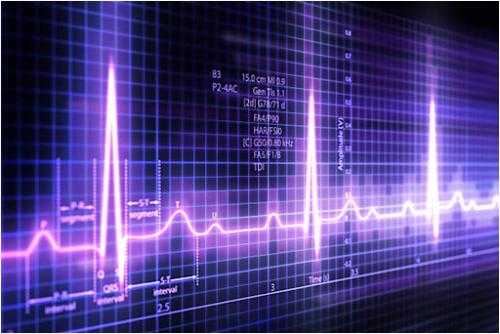Emerging Trends in Healthcare

The healthcare industry hasn’t been doing
well in the recent past. Some studies suggest that a good number of
Americans have reported having a poor experience in healthcare facilities.
Embracing technology and healthcare systems now is more important than ever.
These digital tools can change the way clinics and hospitals operate and
increase efficiency and performance.
In the future, it will be possible to witness robots
performing delicate surgeries or offering tailored treatment plans to patients
suffering from various ailments. It’s also possible for administrators to use
intelligent dashboards to predict the diseases that a patient is suffering from
based on the symptoms. In this article, you’ll learn some top emerging trends
in healthcare.
1.
Transformational Data And Analytics
Data has always been central to the practice of
medicine. The influx of data is changing how medical professionals diagnose,
treat, and predict patient outcomes. The use of RTLS in healthcare and electronic health records has made it easy to retrieve patient
histories and medical imaging data quickly. Furthermore, data sources such as
monitoring devices and patient wearables also serve as a cornerstone for
evidence-based medicine.
The collection of data from various sources has also
made it easier for healthcare providers to create predictive models and analyze
patient trends. Through predictive analytics, healthcare professionals can
identify individuals at risk, anticipate patient needs, and optimize resource
allocation.
The impact of data and analytics has catalyzed a
shift towards personalized medicine. Through patient-specific data, physicians
can now tailor treatment plans based on individual meals. This approach has
enhanced treatment outcomes and reduced side effects. Healthcare organizations
can also now use analyzed data to develop preventative strategies and improve
public health.
2.
Smart Centers
These are healthcare facilities that use the latest
technologies to enhance patient care. They have redefined patient experience
and changed the delivery of healthcare. Some of the cutting-edge technology
you’re likely to find in smart centers include automation, the Internet of
Things, and real-time data of things. These centers were designed to make
healthcare accurate, more efficient, and patient-friendly.
The advantages of smart centers extend to healthcare
providers and patients. For patients, there’s reduced waiting times, easy
access to medical records, and smooth appointment scheduling. On the healthcare
provider’s side, smart centers enable efficient resource allocation, real-time
patient monitoring, and data-driven decision-making.
3.
Electronic Health Records
Health record management is important for any health
facility. EHRs were created to change how patient information is stored,
shared, and accessed. The traditional way of storing patient records often led
to data loss, restricted accessibilities, and inefficiency. However, through
EHRs, healthcare providers can now create, update, and share patient records
electronically.
EHRs offer several advantages to patients. It
enables doctors to access their medical history easily, reducing errors in
treatment and diagnosis. Additionally, it facilitates communication between
healthcare providers and patients and can be useful in cases involving several
specialists. Healthcare providers have also benefited from EHRs. This
technology has minimized administrative overhead, enhanced workflows, and
helped providers to offer evidence-based decisions.
While EHRs come with several advantages, adopting
this technology hasn’t been without challenges. There have been concerns about
privacy and data security that have made healthcare institutions invest heavily
in security infrastructure. Moreover, the transition from paper-based to
digital records hasn’t been easy as some professionals have found the learning
curve steep. Nevertheless, the benefits of EHRs far outweigh these challenges.
That means adopting them in your medical facility can revolutionize the way you
provide healthcare.
4.
Machine Learning And Artificial Intelligence
Machine learning and AI are poised to transform the
healthcare industry in significant ways. Through these tools, healthcare
providers will be able to analyze and process massive data sets, predict
outcomes, and identify patterns. Machine learning algorithms can examine
medical images such as MRIs and X-rays with astounding accuracy. Additionally,
AI-driven chatbots can offer quick responses and revolutionize patient
interactions.
Currently, some medical facilities are using AI
applications for early disease detection, and crafting personalized treatment
plans. These machine-learning models can assess genetic data and identify
predispositions to specific conditions. Once this information is collected, a
healthcare professional can take proactive measures and recommend preventative
strategies.
Although AI holds immense promise, some privacy and
ethical concerns have been raised. As healthcare data becomes increasingly
digitized and AI algorithms continue gaining access to sensitive information
safeguarding patient privacy may become challenging. Healthcare facilities that
strike a balance between using AI and protecting patient rights will most
likely succeed in the industry.
5.
Remote Patient Monitoring
Healthcare facilities should adopt remote patient
monitoring systems to enable patients to take an active role in managing their
health. Through RTLS for hospitals and wearable devices such as blood pressure cuffs and smartwatches,
healthcare providers can monetize patient symptoms from the comfort of their
homes. This data can help with the early detection of health issues and ensure
timely intervention.
The impact of RPM is vital in managing chronic
ailments. Patients with conditions like hypertension, heart disease, cancer,
and diabetes, can benefit significantly from constant monitoring.
The
Bottom Line
The emerging trends in healthcare are reshaping how
healthcare services are being offered. AI tools, predictive analytics systems,
and EHRs have made it easier to manage patient information and offer tailored
solutions to patients suffering from various diseases. Keeping up with the
trends can help patients and healthcare facilities stay informed and proactive
about diseases and healthcare advancements.
Post Your Ad Here
Comments